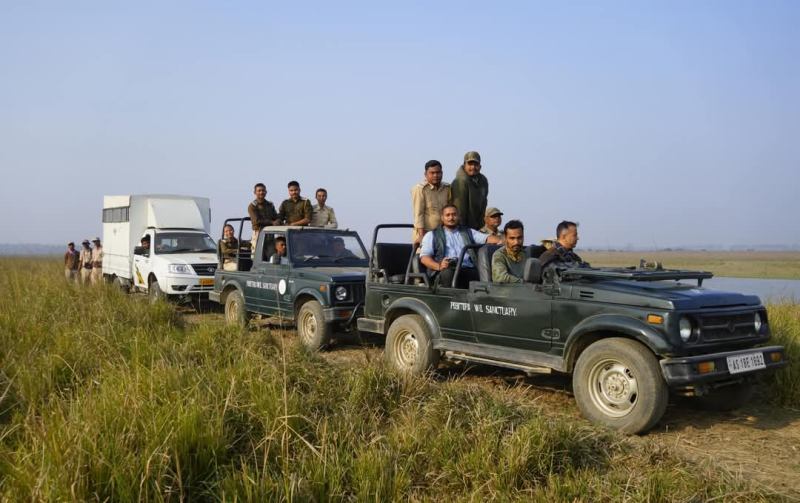Guwahati: Aaranyak, a leading biodiversity conservation organization, recently organized a two-day intensive ‘Rhino Monitoring Training Programme’ at Pobitora Wildlife Sanctuary (WLS) in Assam.
The training programme was aimed at strengthening rhino conservation efforts within and around the sanctuary.
The training, based on the IUCN Asian Rhino Specialist Group’s rhino monitoring methods, was aimed at enhancing the skills of forest field staff in accurately tracking and identifying individual rhinos to strengthen conservation efforts. The training programme was supported by IUCN (CAG).
The scientific monitoring method adopted in the training ensures precise tracking of rhinos, thereby preventing duplication of data collection and significantly improving conservation management strategies in protected areas.
The training programme was divided into two phases— theoretical learning and field testing.
During the theoretical phase, participants analyzed and verified the physical features of 75 identified rhinos, ensuring accuracy in individual recognition.
This was followed by a field exercise, where participants identified the same rhinos in their natural habitat and recorded essential data.
The training was led by Dr Deba Kumar Dutta, a Senior Manager in Aaranyak and IUCN Asian Rhino Specialist Group Accredited Rhino Monitoring Instructor, who provided hands-on guidance to 60 frontline forest staff.
The programme saw the active participation of C.R. Bhobora, IFS (Retd.); Pranjal Baruah, Range Officer of Pobitora Wildlife Sanctuary; and Ujjal Bayan, a researcher from Aaranyak, who provided valuable insights and support.
A significant outcome of this training was the finalization of the ‘Rhino Unique Identification Booklet’, an essential tool for the field staff to systematically document and track individual rhinos.
ALSO READ: Assam leads Northeast’s startup surge with 1,487 startups: Centre
This training initiative marks an important step toward enhancing rhino conservation in Pobitora Wildlife Sanctuary, equipping field staff with the necessary skills to ensure accurate and efficient monitoring of the greater one-horned rhinoceros.















